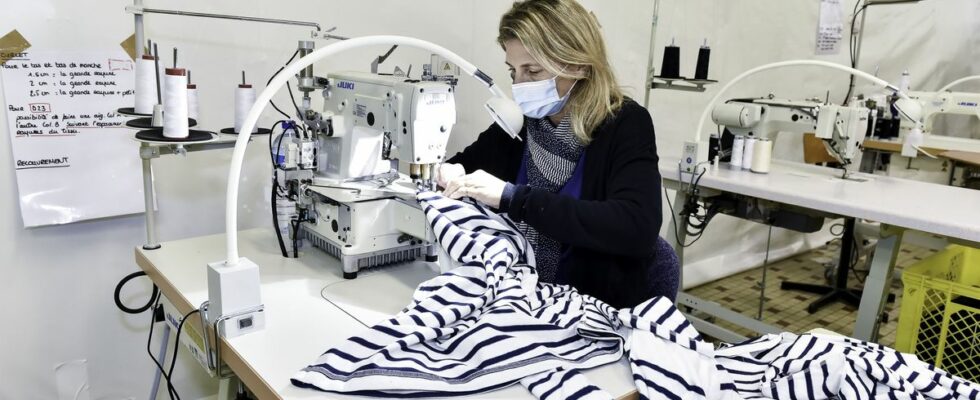Sacrificed on the altar of globalization, the French textile industry has spent decades in a coma. It watched helplessly as its Asian counterpart rose, where all the European brands have opened factories that we won’t comment on. Faced with such a hegemony of Chinese, Indian or Taiwanese spinning mills, the French clothing industry was thought to be destroyed, forgotten, abandoned. It was without counting on his tenacity. Encouraged by the return of made in France, the clothing industry is slowly coming back to life. But to begin her re-education, the poor girl faces a cruel lack of vocations. After having seen its factories and workshops close one after the other, our country ended up losing its know-how. To the point of facing significant labor shortages. To find out, we headed for Brittany.
The country of sailor tops and yellow oilskins has not been spared from relocations. In this region, which for a long time spun flax and hemp to make boat sails, the textile industry had almost disappeared. The most recent example is undoubtedly that of Fougères (Ille-et-Vilaine) where the shoemaking workshops have closed one by one. “Less than 3% of the marinières that are sold here are made in France”, assures Sylvain Flet. The managing director of Le Minor knows all about exporting. Based in Guidel (Morbihan), the workshop which has just celebrated its 100th anniversary exports 65% of its production, particularly to Japan. “It was the Japanese who saved Le Minor,” concedes the boss.
“Know-how has been lost”
In 2018, the founder of the brand of bow ties and hats Le Flageolet took over the hosiery to breathe new life into it. And it worked: +145% growth in four years. The CEO’s problem is recruiting. “To continue to grow, we are completely dependent on the local workforce. But we have great difficulty in recruiting because the know-how has been lost”, testifies Sylvain Flet. Seamstresses, spinners and leatherworkers are desperately needed.
These difficulties are characterized in a survey carried out by the Brittany Chamber of Commerce and Industry and whose the results have just been released. According to the CCI, the textile industry employs 3,000 people in the region. Modest, but up 16% since 2015. The rest is a little scary. Questioned, the companies evoke more than 1,100 hiring projects, that is to say a third of the current workforce! “The sector is driven by the evolution of consumers who want to favor local purchases. The products have good visibility, but not the professions. Desires for a career in textiles have diminished because the image has not evolved. We see the textile industry as a tedious job with serial tasks. This is no longer the case today. The job is very artisanal,” explains Nathalie Boursier, who conducted the CCI survey. Young people would turn more to conception and design than to production.
Beyond the attractiveness of the sector, it is also the long training time that makes recruitment tricky. “We do not replace an employee with forty years of experience with a snap of the fingers”, recalls Sylvain Flet. The boss of the Minor estimates that it takes “three years to understand the job of remeshing and nine years to master it completely”. His company has chosen to take its best people out of production to devote them to the sole task of training. A daring bet but one that could pay off in the long term.
The fear of retirement
Within the Grandis workshops, we opted for the complete creation of an in-house training school, where adults, often in retraining, are welcomed. “Our challenge is already to maintain our workforce to cope with retirements,” testifies Matthieu Coquelin, director of the Coglais clothing workshops, in Ille-et-Vilaine. According to the CCI survey, more than a quarter of skilled workers in the textile industry are over 55 years old. For the luxury swimwear company, it is therefore urgent to train now, before the fairy hands give up their aprons. “It is above all the image of the profession that needs to be changed. With us, we talk about a workshop, not a factory. Our seamstresses work by island, they have a real know-how which is essential”. The director of the structure evokes professions “that make sense”. “We saw it during the health crisis. All of France was arrested during the confinements but not us. We made masks. It reminds us of the importance of our professions”. Essential, they said at the time.

